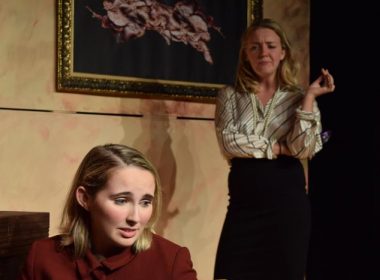*Content Warning: This article discusses systemic discrimination and suicide.
On Jan. 19, the Religious Studies Undergraduate Society (RSUS) published an open letter calling on McGill to address discriminatory behaviour by Dr. Douglas Farrow, a faculty member in the School of Religious Studies. The letter describes how Professor Farrow creates a harmful environment in his classes, particularly towards 2SLGBTQIA+ students, violating McGill’s preferred name policy and expressing hostile views towards transgender individuals and same-sex marriage. Academic freedom must never outweigh the safety of marginalized students. McGill must act to protect its students and clarify the scope of its policy to recognize its supposed commitment to equity.
While McGill has yet to release a statement directly addressing concerns over Farrow, the university has sent out two separate emails this academic year reaffirming its commitment to academic freedom. The first addressed a controversy at the University of Ottawa, where a non-Black instructor used an anti-Black slur in class. The second was in response to an open letter from the Students’ Society of McGill University that denounced Professor emeritus Philip Carl Salzman––who has published racist views about Middle Eastern people––and called for McGill to overhaul its policy on academic freedom. In both emails, the university claimed that academic freedom and equity and inclusion cannot supersede one another, yet failed to acknowledge the harm students experienced.
Academic freedom is undoubtedly important; at its core, the principle is meant to protect academics from arbitrary punishment and secure their ability to research freely. In the classroom, it allows for the expression of any idea or opinion without fear of censorship. But at times, academic freedom can be used as a cover for instructors to propagate harmful ideas, allowing educators to equate discrimination to a difference of opinion and a simple matter of freedom of speech under insufficient university policies. The fact that Farrow teaches required courses forces queer students to interact with someone in a position of power who believes their identity is a threat and refuses to use their correct name and pronouns. When rates of suicide amongst trans individuals are higher than almost any other demographic, that Farrow or any other instructor can get away with this is deeply troubling.
Behaviour of this kind can serve to work against the principles of academic freedom and open discussion in the long term by discouraging marginalized individuals from pursuing academia. If students are forced into unsafe learning environments, they may be less likely to remain in the field to conduct their own research. Additionally, marginalized faculty members may feel less safe expressing their own views for fear of discrimination.
In principle, academic freedom should work in tandem with equity and inclusion to create a safe university environment; in practice, McGill has failed to show much consideration for the latter. It does not help that the university’s statement on academic freedom is vague, making it difficult to know where the line is drawn between academic freedom and punishable discrimination. While the university is clear that academic freedom cannot be used as a defence against hate speech or otherwise illegal behaviour, discrimination often goes beyond what is explicitly outlined by law. As such, McGill must redefine the boundaries of their statement.
As with freedom of speech, academic freedom should not directly translate to total freedom from consequences. Farrow’s position as an academic should not give him an unquestionable right to teach required courses. There can and should be ways to ensure a safe learning environment, and allowing students to opt out of courses taught by Farrow and others with actively harmful views is but one example. McGill cannot flaunt its preferred name policy, its plan to address anti-Black racism, or any other initiative while failing to address hateful behaviour towards students and faculty.








